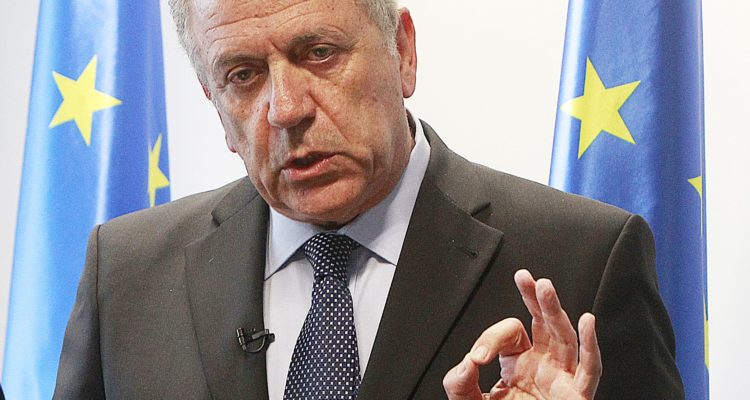The EU is penalizing the member states of Poland, Hungary and the Czech Republic for failing to absorb their share of asylum seekers still stationed in Greece and Italy.
The European Union’s (EU’s) Migration Commission is imposing sanctions on several EU member states for refusing to take in asylum seekers among the thousands remaining in Greece and Italy.
“I regret to see that, despite our repeated calls to pledge and relocate, the Czech Republic, Hungary and Poland have not yet taken the necessary action,” said EU Commissioner Dimitris Avramopoulos at a press conference on Tuesday in Strasbourg, France.
“For this reason, the Commission has decided to launch infringement procedures against these three member states.”
Avramopoulos stressed that EU member states cannot independently pursue their own migration policies.
“Relocation is not a choice,” he emphasized. “It is a legal decision, with legal obligations, agreed on collectively, and which has to be carried out collectively, without exceptions,” he said.
“We have to be fair towards those member states that do fulfill their obligations,” he continued. “I sincerely hope that these member states can still reconsider their position and contribute fairly.”
The EU’s Migration Commission warned member states several months ago against failing “to do their duty” in sharing the burden of absorbing some of the asylum seekers. Nevertheless, Polish Interior Minister Mariusz Błaszczak said last month that absorbing thousands of asylum seekers would “certainly be much worse” than facing EU sanctions.
“We mustn’t forget the terror attacks that have taken place in Western Europe, and how, in the bigger EU countries, these are unfortunately now a fact of life,” added Błaszczak.
Avramopoulos contended on Tuesday that such issues were considered and the asylum seekers authorized for resettlement were investigated.
“We only relocate or resettle people in clear need of protection,” he said. “These are people who have been very thoroughly identified, screened and fingerprinted.”
“In fact, it is precisely by not facilitating relocation or resettlement that one contributes to secondary flows and to irregular arrivals – and this in turn contributes to security risks,” Avramopoulos suggested.
“Only by relocating and by resettling, by following the procedures, can we effectively and jointly reduce irregular and secondary migration flows, and any potential security risks.”
“It is now high time for everyone to deliver,” Avramopoulos added.
By: Jonathan Benedek, World Israel News




